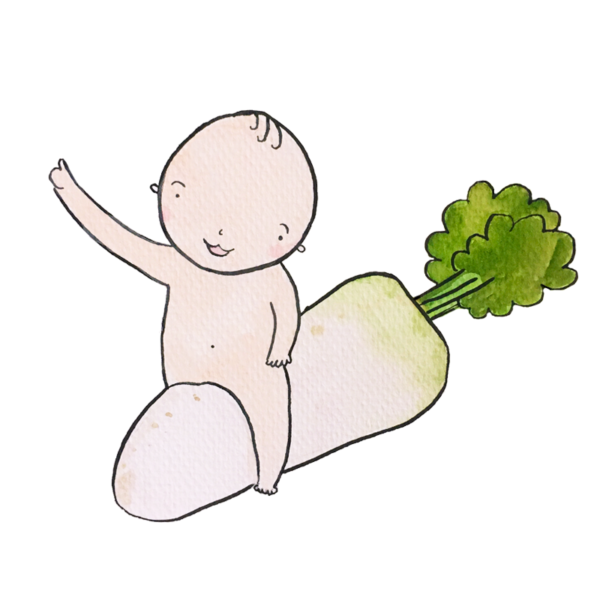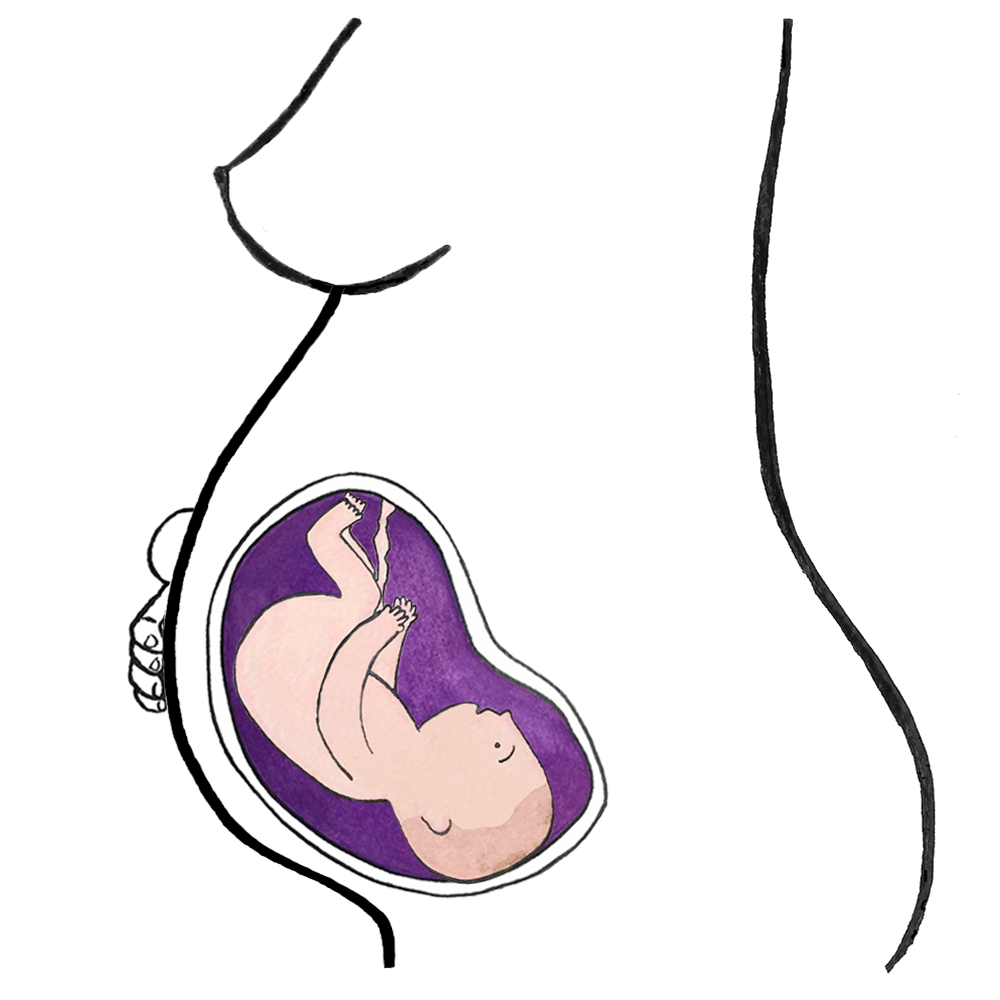30 weeks pregnant
Weekly update

Your Child may now have turned to adopt a position ideal for a natural delivery.
With the due date coming nearer, you might be feeling anxious, and together with your odd sleep patterns, you might be having vivid dreams.
Your Child’s development
Every day, more fat is added to keep the little one warm. Your Child now weighs about 1.5kg and measures about 40 cm in height — the size of a radish.
Facial expression: Your Child now responds to bitter-tasting foods with facial expressions, indicating that the reflex pathways between taste buds and facial muscles are established.
The immune system: To get ready for life outside the womb, Your Child is building up their immune system by taking up some antibodies from you. It is believed that a baby’s immune system does better in an environment both mother and child are acclimated to. So, after birth, the safest place for Your Child is your home.
Head down position: By this time, most babies have started adopting the head-down position, which is easier for a natural delivery. If Your Child doesn’t turn around, you are up for a breech birth, a situation where the baby is born bottom first instead of the head. Around 3–5% of pregnant women at term (37–40 weeks pregnant) have a breech baby, and most of them are born by a cesarean section because it is seen as safer than being born vaginally.
Vision: Although the eyes are still maturing, they’re already in place. At the moment, vision is still poor, but Your Child may be able to open eyes. Vision will keep improving while in the womb, and the improvement will soon speed up, reaching a stage where Your Child will be able to observe horizontally and vertically moving objects in the next couple of weeks.
Red blood cell formation: By the end of this week, bone marrow, a spongy substance inside the bone, is now mature enough to become a major site for the production of red blood cells, white blood cells, and platelet. Red blood cells help carry oxygen; white blood cells help against infection, while platelets help with blood clotting and prevent severe bleeding when Your Child gets insured.

Your development
With the growing belly and the urge to pee more often, it will be increasingly more difficult for you to have undisrupted sleep. The more you wake up, the more dreams you might have, and the clearer you remember them. Combined with stress or anxiety, those vivid dreams can be quite scary.
Talk with your partner or doctor about your dreams to relieve some of your anxiety.
What to do now
With the delivery day approaching, you might want to read and learn more about early child development, or how Your Child and other children develop body and mind holistically. One topic that you might come across is the critical period for brain development.
The critical period for brain development: Your Child’s earliest experiences, especially during the first three years of life, build the foundation for lifelong learning, behavior, and health. During this critical period, Your Child’s brain gains more than a million neural connections every second.
You can help strengthen these neural connections by interacting back and forth with Your Child, a process known as “serve and return”. So, whenever your baby babbles, gestures, or cries, respond with eye contact, words, smile, or a hug.
Verified:
Dr. Wanwadee Sapmee Panyakat (OB-GYN), license no. 41208 (20 October 2021)
Sources:
- 30 Weeks Pregnant - Pregnancy Dreams, American Pregnancy,
- 30 Weeks Pregnant - The Endowment of Baby Development
- How Pregnancy Can Affect Your Dream, Sleep Foundation
- Baby’s Brain Begins Now: Conception to Age 3, The Urban ChildInstitute
- 30 Weeks Pregnant - Breech Birth, Wikipedia,
- Serve and Return, Center on the Developing Child
- 30 Weeks Pregnant - Fetal development: The 3rd trimester, Mayo Clinic
- Fetal development: The 3rd trimester, Mayo Clinic



